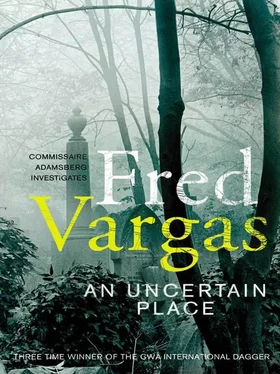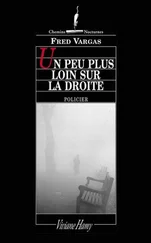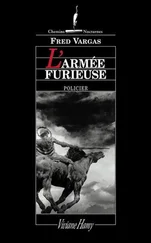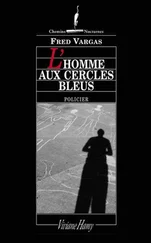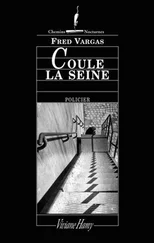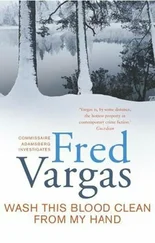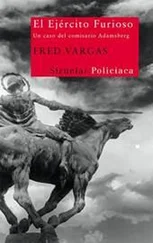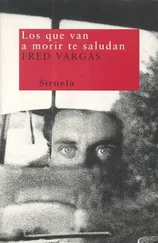‘What is all this bullshit anyway, Mordent?’ she asked hoarsely. ‘Since when is the judicial system in such a hurry? And who’s behind it?’
‘I don’t know, I’m just following orders.’
‘You’re following them a bit too closely,’ said Adamsberg. ‘So what are your two pieces of evidence?’
Mordent looked up. Émile was making himself inconspicuous, fiddling about setting fire to a twig.
‘We contacted the retirement home where Feuillant’s mother lives.’
‘S’not a retirement home, it’s a death camp.’
He was still blowing at the twig trying to kindle it. Too green, thought Adamsberg, it won’t catch.
‘The matron confirmed it. At least four months ago, Émile told his mother that they would soon be going somewhere else and they’d be able to live off the fat of the land. Everybody knew about it.’
‘Course they did,’ said Émile. ‘I told you, Vaudel told me I’d be rich, and I told my mother. Stands to reason, don’t it? Do I have to tell you twenty times? Man could go barmy here.’
‘All right,’ said Adamsberg calmly. ‘And the other element, Mordent?’
This time Mordent smiled. This time, he’s sure of himself, thought Adamsberg, he’s got the fish belly-up now. Looking closely, he thought Mordent’s face was showing signs of strain. There were dark rings under his eyes, and his cheeks were drawn.
‘There was horse manure on the floor of his van.’ He pointed to Émile.
‘So what?’ said Émile, stopping blowing on the twig.
‘We found at least four little balls of manure at the crime scene. The killer must have had it on his rubber boots.’
‘I don’t have no rubber boots, that’s got nothing to do with me.’
‘The judge thinks it does.’
Émile stood up, abandoning the twig, and pocketed his tobacco and matches. He bit his lip, looking suddenly panicked. Discouraged, piteous, as still as an old crocodile. Too still. Was it at that moment that Adamsberg realised? He never quite knew. What he did know for sure was that he took a step back from Émile, creating a gap that left his way clear. And Émile reacted with the unreal speed of a crocodile, attacking with a lightning strike. Before you can say knife, it’s seized the antelope by the leg. And before you could say knife, or see how Émile had struck them, both Mordent and Retancourt were on the ground. Adamsberg saw him sprint down the path, jump the wall and cross a garden, all so fast that only Retancourt might be able to catch him. The lieutenant was off to a late start, but got up, clutching her stomach, then ran after the man, throwing her weight into the pursuit, heaving her 110 kilos over the wall with ease.
‘Immediate reinforcements,’ Adamsberg said into the car radio. ‘Suspect escaping west-south-west. Secure the perimeter.’
Later – but he never got a clear answer – he wondered if he had put enough conviction into his voice.
At his feet, Mordent was clutching his genitals and moaning with pain, tears running down his cheeks. Mechanically, Adamsberg leaned over him and clasped his shoulder as a sign of understanding.
‘Bad move, Mordent. I don’t know what you were trying to do exactly, but next time you’ll have to find a better way to do it.’
SUPPORTED BY THE COMMISSAIRE , MORDENT WAS LIMPING back to join the rest of the team. Lieutenant Froissy had now replaced Lamarre and had immediately taken charge of rations, providing everyone with lunch on a table in the garden. You could always count on Froissy, who treated the question of provisions as if there was a war on. Thin and always hungry, her obsession with nourishment had led her to install various food stores in the headquarters of the squad. They were believed to be even more numerous than Danglard’s caches of white wine. Some people even claimed that they would still be finding these food stores in the remains of the building in two hundred years’ time, whereas Danglard’s bottles would long since have been emptied.
Lieutenant Noël had his own theories about Froissy. Noël was the toughest member of the team, with a crude attitude to women and an aggressive one towards men. Suspects he always treated with contempt. He caused more harm than good on balance, but Danglard considered his presence necessary, maintaining that Noël catalysed the darkness that lay inside every police officer and in that way he allowed others to behave better. Noël shrugged and accepted his role. But oddly enough, he was better informed than anyone about his colleagues’ intimate secrets, whether because his brusque and direct approach overcame their inhibitions, or because they felt no shame in letting him view the murky depths of their lives, since Noël’s own past made him unshockable. At any rate his interpretation of Froissy’s dietary insecurity was, he said, linked to the fact that when she was a baby her mother had fainted and lost consciousness and she had been left for four days without nursing. So Froissy, he concluded with a knowing laugh, was still looking for the breast and giving it to others at the same time, which explained why she never put on any weight.
It was three in the afternoon and they had to wait till they had eaten before they could relax and tell each other what exactly had been happening outside the villa. They knew that Retancourt had gone in pursuit of someone – which was generally bad news for the pursued – and that she had been backed up by a squad from Garches, three patrol cars and four motorcyclists. But there had been no word from her, and Adamsberg had reported that she had set off with three minutes’ handicap, after receiving a punch to the midriff. And the someone in question, otherwise known as Émile or ‘Basher’, eleven years inside and 138 known brawls, was the kind of guy who would escape even Retancourt. He summarised, but without going into details, the disagreement between himself and Mordent which had caused the suspect to run for it. Nobody asked why Émile hadn’t punched the commissaire or why Adamsberg hadn’t gone after him himself. Everyone knew that Retancourt was the fastest on her feet of all the squad, so they considered it normal that she had set off alone. Mordent wiped his plate, still looking grim, but that was put down to concern for his testicles. In Émile’s file, rapidly checked, nobody had failed to see one item, namely that ‘Basher’ had destroyed the manhood of a racing driver with a single blow of his elbow. That fight alone had fetched him a year in jail, plus compensation and damages yet to be finalised.
Adamsberg observed his colleagues’ expressions of doubt, questioning and hesitating between the instinctive sympathy they all felt for their fellow officer who had received such an intimate injury, and a cautious prudence. Everyone, even Estalère, had understood that Mordent had stepped out of line in an incomprehensible way: he had jumped the gun by ordering a suspect to be taken into custody without first referring to Adamsberg, and had then panicked the suspect by tackling it in an amateur way.
‘Who put the last samples in the truck this morning?’ Adamsberg asked.
He unthinkingly poured the liquid from the bottom of a bottle into his glass: it was ochre-coloured and cloudy.
‘It’s home-brewed cider,’ Froissy explained. ‘You can really only drink it for an hour after it’s opened, but it’s very good. I thought it would cheer us up.’
‘Thank you,’ said Adamsberg, drinking off the thick residue.
Another of Froissy’s functions was to try and keep people’s spirits up, which was not easy in a team of criminal investigators who were chronically short of sleep.
‘Froissy and me,’ said Voisenet, in answer to his question.
Читать дальше
